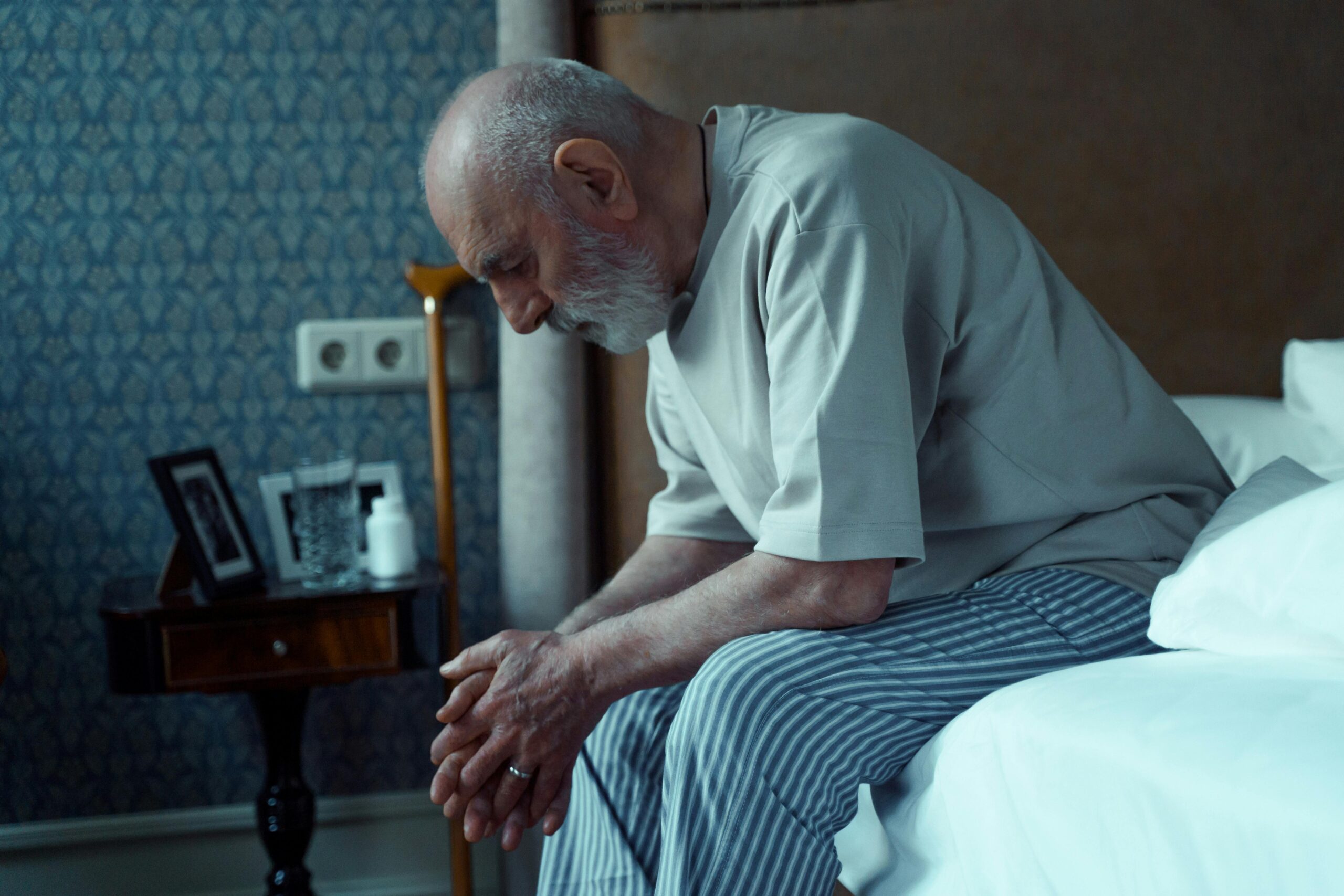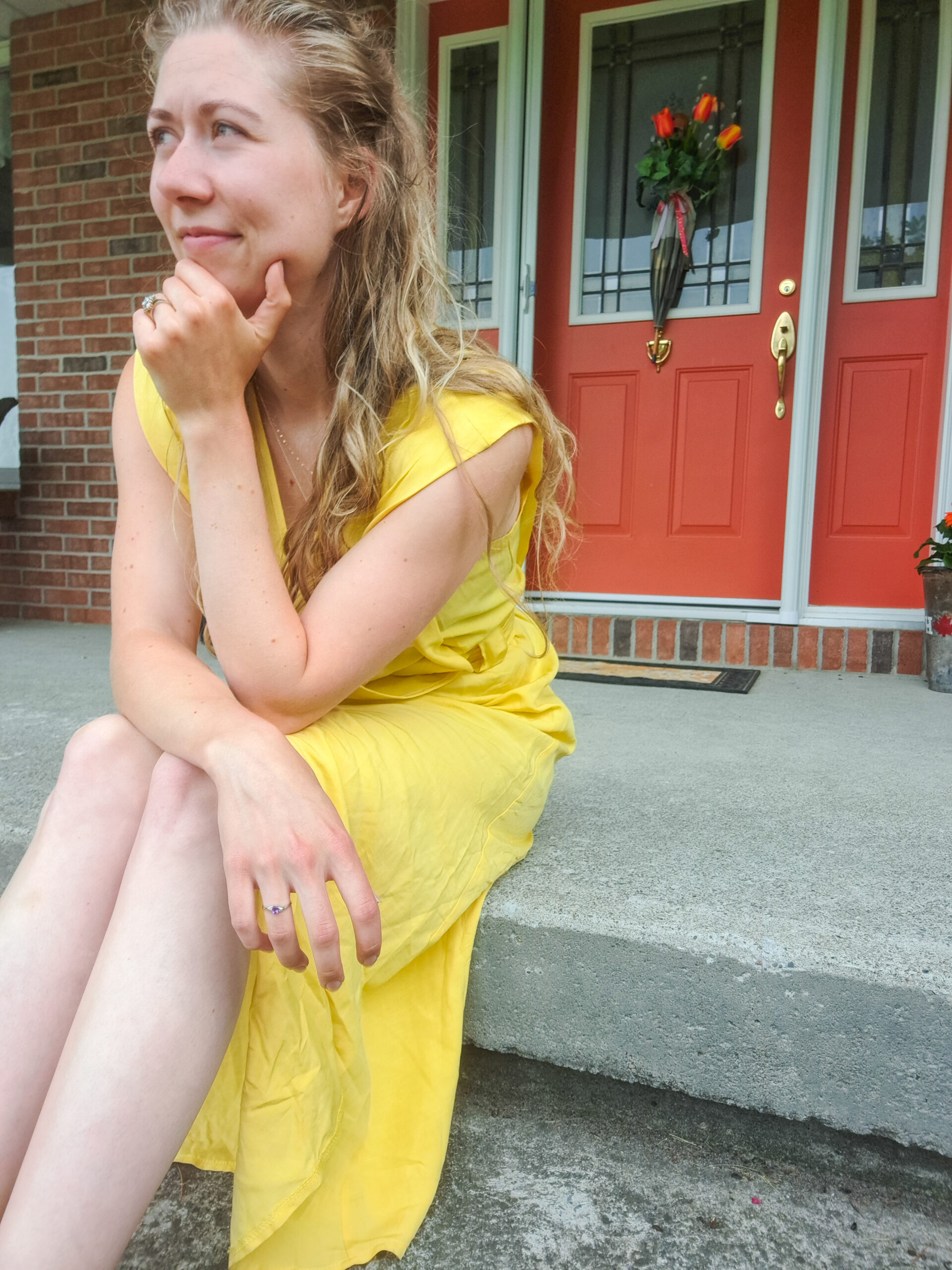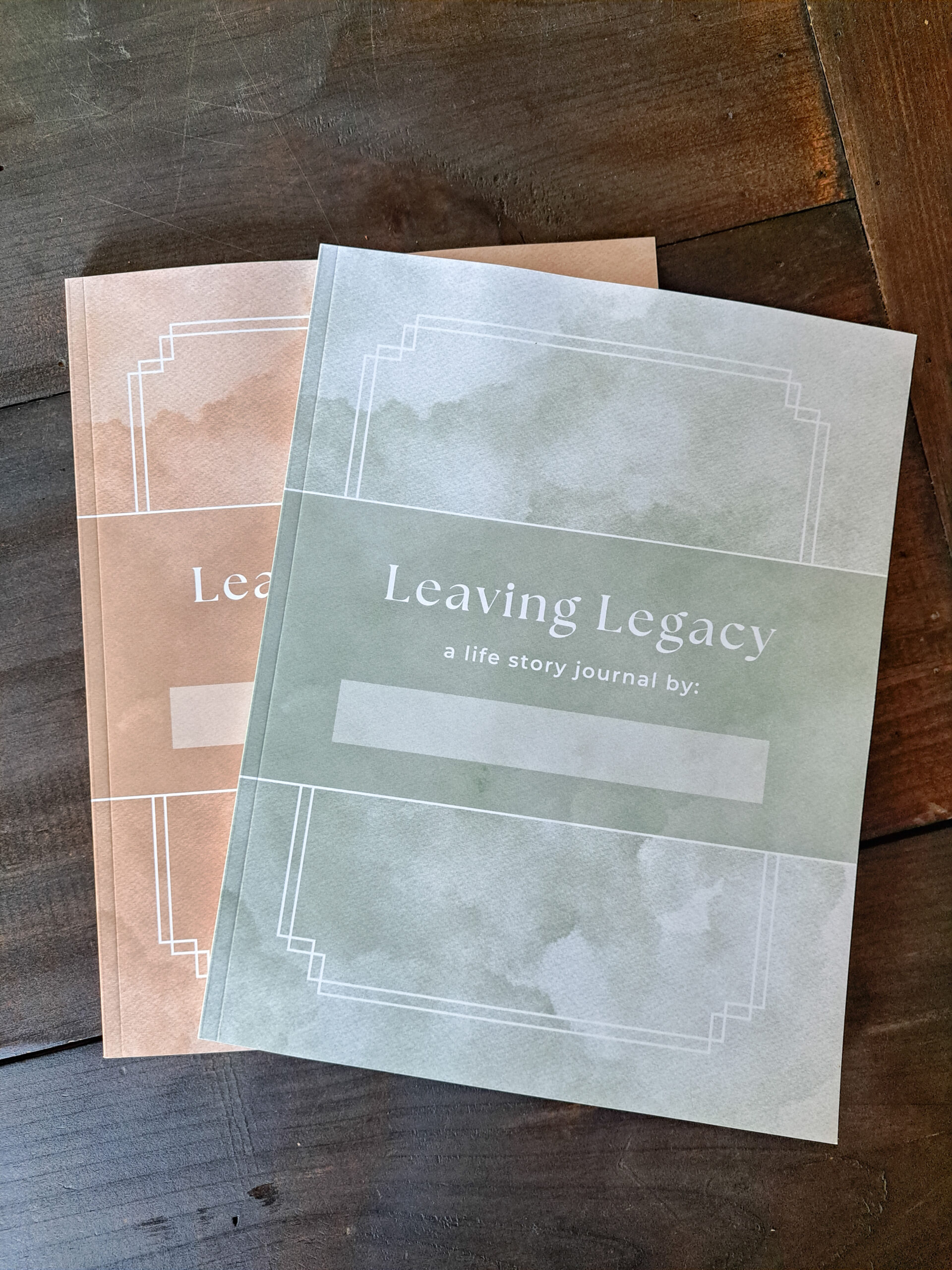LISTEN to the podcast of this blog post on Spotify:
WATCH the podcast video on YouTube:
In this series of podcast/blog episodes, I share real-life stories and experiences from my clients and people I have chatted with through a decade of working in the aging sector. Below is a summary of how each podcast/blog is outlined.
*Details of all podcast/blog stories are adjusted to ensure confidentiality of all parties.
In this episode :
- The Situation – What the client was experiencing or the circumstance they were facing.
- The Client – How the client was perceiving and responding to the situation – their mindset, emotions and result.
- The Guidance – How I helped shift their perspective to renew their mindset, emotions and result.
The Situation

This is another one of those stories that I’ve heard in many different forms before. The details of the situation change, but the core problem is always the same.
In this example, a man is in the hospital after having a heart attack, and his wife and daughter are there with him.
The man’s general state of health is not in a great place, so the doctor is asking him what his DNR wishes are.
DNR stands for Do Not Resuscitate, so DNR wishes or level of resuscitation, it’s really a sliding scale of how you want your care to be handled if you are in a state that requires things like CPR, a defibrillator, breathing assist devices, etc. etc.
And let me pause here to say that the doctor is asking him this question smack in the middle of this family shattered in turmoil, grief, and unknown.
The Client

MINDSET & EMOTION
This man has just had a heart attack, his terrified wife and daughter are at his bedside, and the doctor is asking him what is DNR wishes are, and this man has never discussed DNR wishes with any of his family or care providers.
As a man in his 80s, he says he wants to go without resuscitation efforts. He doesn’t want CPR performed on him or to be kept on a ventilator, etc.
But his wife standing there hearing this, strongly disagrees and convinces him in the moment to change his decision, and take all the resuscitation treatments possible, and the doctor allows it all to happen in front of them and changes the notes being made about the patient’s care wishes.
RESULT
This is NOT aging autonomy. Influencing someone else’s aging and end-of-life care decisions because of your own mindset and emotions is a form of control and holding power over the other person.
This does NOT support aging autonomy for the individual.
The Guidance

I will say here, that I do believe that decisions like this can be discussed with family members and everyone’s opinions can be voiced and heard and taken into consideration, but ultimately, it is an individual’s decision as to how they choose to be cared for in an emergency situation.
This man had identified his wishes for his future of care and in a very emotional state his wife was convincing him to change his mind.
Which leads me to my next point of insight to this situation.
These decisions should not be made in the middle of a crisis situation, from an intensely emotional state.
These are the types of decisions that an aging adult needs to be making way ahead of time.
Jess Davis
Perhaps I should reword that, because I said an aging adult needs to be making these decisions ahead of time. But what I mean by that is – ANY adult should be making these decisions ahead of time.
Maybe as someone in your 40s, 50s and 60s, it’s an obvious choice for you, that you want to have full resuscitation efforts in a crisis situation.
Then maybe you reach your 60s and you receive a diagnosis that leads you to wanting to change your decision. Maybe now with this new diagnosis, you want breathing support but you don’t want your body to undergo CPR and a defibrillator.
These are just random examples I’m throwing out, but my point is – as an adult, with full cognitive function, in charge of your own health care decisions, you need to identify to your family or whoever your care partner is, what your wishes are if you are faced with a crisis situation.
Then you need to update your family or care partner if you ever want to change those decisions.
As you continue aging, you NEED to reevaluate how you want to be cared for and tell your family those wishes, because otherwise they don’t know.
RENEWED RESULT
So whether you are an aging adult or a family member/care partner to an aging adult you need to be open and honest about having these conversations.
As an aging adult, you can listen and hear out your family members on what they would want for you and then make your decision. But you have to stand firm in your aging autonomy and your right to choose what care you receive.
As a family member or care partner, you can calmly and clearly voice your opinion, but you have to respect the decision of the individual because it is their own body and their own care. Respect their aging autonomy.
I will note that this conversation obviously changes when cognitive impairment or a diagnosis of cognitive decline is in the mix.
That is a very different situation with powers of attorney and substitute decision makers and everything.
However, I will say again, these are conversations that you should be having well in advance of a potential diagnosis around cognitive health so that any POA or substitute decision maker would know how the aging individual wants their care decisions to be made.
I’ve witnessed adult children who are having to make these decisions for their parent with advanced dementia who gave no direction and had no previous conversations about it.
I’ve also witnessed adult children who did have these proactive conversations with their parent and it is a completely different set of emotions that are felt.
One is full of uncertainty, overwhelm and fear, while the other one, although grieving the situation, has an underlying sense of calm and clarity because they know the care decisions being made are what their parent specifically said they wanted. And again, I will not remove the fact that they still feel deep grief and loss, but the proactive conversations are like a weird type of comfort.
It takes a huge load off of a family member or care partner when in the heat of the moment and the height of emotions, they are not making new decisions. They already know the answers because it was a conversation that was had intentionally and proactively.
A FINAL THOUGHT
Those are the 2 words you will hear me say over and over again.
Your family must be INTENTIONAL and PROACTIVE about aging care and end-of-life care decisions.
We have to remove the stigma and the ignorance and the fluff around aging and death in order to ensure someone is anchored in their aging autonomy and therefore can create THEIR optimal aging experience.
I’m sure this episode leaves you with a lot to think about. Think about who you need to have these conversations with. Whose aging autonomy do you need to show support for?
Is it your own aging autonomy that you need to reflect on and then voice to your care partner?
Or is it someone else – your spouse? Your parent? Maybe even a grandparent?
We all have someone we need to have this conversation with. Any one of us could find ourselves in a crisis situation some day. Make sure you’ve done the work to prepare for it.
The Ageucation Mini-Course is a great place to start. I created it to give individuals and families and ‘first step’ to lay the foundation and understanding for Age Planning. Check it out at nestage.ca/minicourse or send me an email to learn more.

3 reminders before you go –
#1. Go check the show notes for any resources or links I mentioned in this episode that peaked your interested. (I link these directly in the blog above.)
#2. Please share this episode with a friend whom you think it would bless. Because in order for more families to benefit from my Age Planning resources, I need listeners like you to spread the word.
And #3. I would love to hear from you – email me with your thoughts on this episode, or to suggest a topic you’d like to hear on a future episode – hello@nestage.ca .
And remember, we’re all aging. Aging is the same as Living. And it is a privilege to live and to age.
Jess


